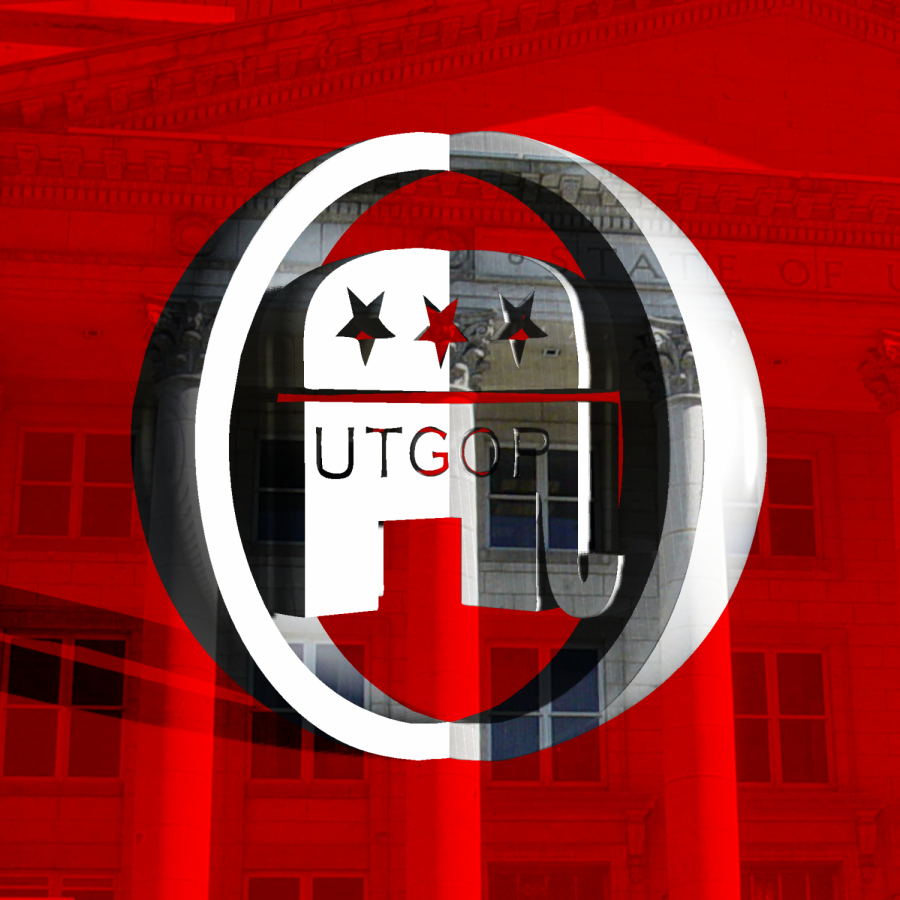Linnabary: Utah’s Alcohol Laws Affect Our Liberty
(Graphic by Cyan Larson | The Daily Utah Chronicle)
September 9, 2021
Before I moved to Utah, people who lived here consistently warned me about Utah’s unorthodox laws around particular activities and substances. After I visited Utah before moving here, I truly began comprehending what I’d been warned about. I struggled to find a place to eat in downtown Salt Lake City because individuals under 21 could not dine at establishments designated as bars. Needless to say, this experience surprised me. I never had to worry about restaurants turning me away because of my age.
This strange law around age and dining is the rule, not the exception here in Utah. To order an alcoholic beverage in the restaurant or bar, you must also order food. You can also only purchase certain liquors in state-run liquor stores, which close on Sundays and holidays.
Furthermore, beer must also be 3.2% alcohol by weight or 4% by volume. Other states aside from Utah have strict alcohol laws. These laws limit an individual choice and liberty by not allowing a legal adult to purchase and consume a legal substance in a way that almost every other state would allow. Laws that inhibit liberty, one of the founding principles of our country, do not serve citizens well.
In an interview with Luke Garrott, Ph.D., a professor at the University of Utah and former Salt Lake City Council Member, he defined liberty as “this negative freedom, having a sphere of non-interference, where we are not coerced or restrained.” According to this definition of liberty, we can see Utah’s laws concerning alcohol do not uphold an individual’s liberty compared to other states.
If a patron at a bar wants to purchase beer without ordering food and the restaurant has no issue with that, why should the state step in and say “no”? Some would argue that establishments that serve alcohol and the consumption of alcohol, in general, damage the community; therefore, the state should step in and regulate both. When the state creates laws to regulate what some would frame as unproductive activities or substances, we often say they attempt to promote the common good.
It seems then that Utah views alcohol and establishments that serve them as not promoting the common good. Alcohol and establishments that serve it have brought people together to celebrate with each other for almost all of American history. If anything, establishments that serve alcohol only further serve the common good.
It’s certainly no secret that Utah has a high population of followers of The Church of Jesus Christ and Latter-day Saints who view alcohol as “not being for the belly.” Consequently, the LDS Church lobbies against alcohol at every turn.
For example, while serving on the city council, Professor Garrott said he attempted to change zoning rules to potentially build more bars and taverns. During the process, he experienced pushback from the LDS Church’s leadership. He said the LDS Church “did not think that the bars or taverns were assets to the neighborhood, and I was making an argument that they were because they are a place for people to meet and get to know each other.”
Given the sizeable LDS population in Utah, with 68.5% of the state’s population identifying as LDS, many state laws reflect the values of its large LDS population.
Federalism, local power and the ability for states to be laboratories of democracy contribute to making America so great.
Utah making these laws reflects the values of their population, which is a good thing. States can definitely make laws that reflect the values of their population — even if they seem slightly unorthodox to people outside the state. In a country as large and diverse as the U.S., states should make laws for their citizens instead of one-size-fits-all policies. But at the same time, that does not mean that we can’t criticize these laws.
When the laws created by states begin not to serve their citizens well, it becomes time for them to face opposition. Utah’s laws around alcohol and dining limit liberty and individual choice, which serve as core founding values of the U.S. In pursuit of promoting the common good, these liquor laws work against that cause.
We should thoughtfully consider how to change or reevaluate these laws to better serve the common good rather than work against it.










Marcelo Jose Dos Santos • Sep 10, 2021 at 8:55 am
The first time I lived in Utah was back in 2001. At that time, I would hear the same complaint from people that moved here from different states, saying that Utah had all these weird laws and prohibitions. When I asked them why they moved here, the answer was almost the same: “This is a great place to raise a family.” It amazes me that you move to a place because you see it as a great place to raise a family, but when you get there, you want to change the very laws and principles that make that place a great one for that purpose. And 20 years later people still argue about that, now using the “liberty” narrative. Simple and plain, alcohol is a drug that causes addiction and a lot of suffering. The fact that it is legal and allowed to adults does not take away the fact that it is harmful to the body. I am glad Utah still holds on to these laws. By the way, I come from Brazil, where the laws are not so strict, and I have seen first hand the damages alcohol can cause to society, even having lost my own father because of its abuse.
Mykie • Sep 10, 2021 at 1:18 am
To clarify, bars aren’t required to make you order food. The law says food “must be available” A lot of places out out pretzels and have a menu to order food.
Mykie • Sep 10, 2021 at 1:16 am
Some of this info is incorrect. If an establishment is zoned as a bar, you do NOT have to order food to order alcohol. Places zoned as restaurants (where anyone of any age can eat) are the only places you have to order food to be able to order alcohol. Bars do NOT apply.